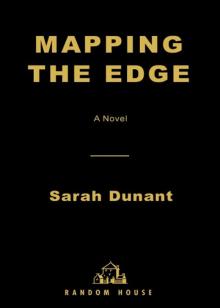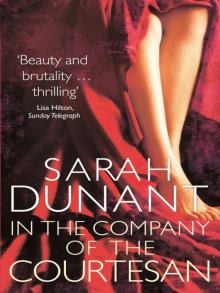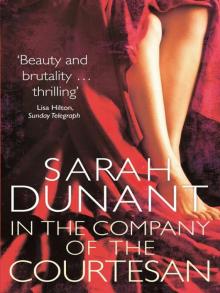- Home
- Sarah Dunant
Snowstorms in a Hot Climate Page 2
Snowstorms in a Hot Climate Read online
Page 2
Being outside was about as pleasant as having a sack pulled over your head. The air was so heavy that it seemed to clog up your nostrils, as if it was almost too damp to breathe. Maybe all the oxygen had already been used up by the people who had breathed it before. Summer in New York. How could anyone imagine touching in this heat, let alone being intimate? Had the birthrate been seasonal until the invention of air-conditioning? Elly seemed oblivious of the imminent suffocation.
The car turned out to be a Cadillac which would have been new around the time of American Graffiti. It wore its experience well, as if it were under the impression it was something of a collector’s item. For all I knew about cars it could well have been. For all Elly knew either. Either she had learned or someone had done her buying for her.
Inside I pulled on my seat belt. She waited for me to finish.
“So,” she said gaily, hands on the wheel. “Where do you want to go?”
“How about home?”
“Which one? I’m afraid you have a choice.” She made a face. “I’m sorry. I did try to warn you in the letter, but I probably didn’t put it right.”
I swallowed my surprise. “What are you offering?”
“An apartment in Manhattan or a house in Westchester.”
The mystery needed to be kept in scale. Neil Simon rather than Great Gatsby. “Manhattan, I think.”
“Good. I thought you would.”
From behind us, twenty yards down the concourse, came the shriek of a police whistle, followed by a bulky cop, waving his arms in exaggerated fury. Elly rolled down her window and gave him what might have passed for a West Point salute. We moved off in search of the city.
Later, on the terrace, we sat and watched the night move. I had left English time behind, blasted it away in a jet-stream shower: the power of water pressure, as American as apple pie and long-range missiles. Out of the bathroom I wrapped myself in a robe, picked up the glass of bourbon waiting for me on the bedside table, and together, the liquor and I went in search of Elly.
We found her in a large canvas chair on the terrace, an urban lookout post fringed with window boxes filled with geraniums and facing out over a dark mass of trees. Central Park and exclusive real estate. New Yorkers pay for greenery like Arabs pay for water. I wondered what the Westchester house looked like. Behind us, through tall French windows, was a spacious sitting room lined with bookcases and the odd, exclusive Chinese print. On the floor, a huge rug on polished boards and four powerful speakers. Planned elegance. Hardly consistent with the Elly I once knew, full of chaos and good intentions.
The hum of the city moved up in hot airstreams toward us. We sat cloaked in heat, the night bringing scant relief. I poked my ice cubes down into the golden brown liquid and watched as the water and the liquor merged to form oily patterns on the surface.
I looked at her. In the darkness she was more like the Elly I remembered. Her new angularity was subdued, rubbed soft by night shadows. I stretched out my legs and felt again how large my body was in comparison with hers. The familiarity of the feeling gave me a strange pleasure. If the night had not been so charged with questions, it might almost have been two years ago. There was silence. It didn’t bother me. Patience is a virtue I am familiar with. She screwed up her face into a half smile, half grimace. It was a gesture I knew very well.
“I’m not sure I know where to begin,” she said at last. “It all seems so long ago.”
“How about Colombia, seventeen months ago? The last time I heard from you was a letter from an unpronounceable place somewhere near the Ecuador border. I had to look it up on a map to find it. You had just had your money and passport stolen, and you were going to Bogotá to get things sorted out.”
She looked at me hopefully, as if she thought I might continue, tell it for her. What was it that could be so hard to say?
I helped. “Come on, Elly Cameron. I just mortgaged my summer vacation on the promise of a good fairy tale. If you make it riveting enough, it might even conquer my jet lag.”
She stared down at her hands, then out into the night. Then she began.
three
Well at first I was just freaked out. I’d already spent a month in Colombia, traveling with my valuables more or less sewn to my skin. Everywhere you went you heard horror stories. It seemed the whole national economy was based on the rip-off. Looking back on it, I think I’d been in a state of perpetual tension right from the moment I’d stepped off the plane in Cartagena Airport. So, when it actually happened, when I got back to my room after the shower and found the door prized open and my money belt with passport, traveler’s checks, and tickets gone, I think I was almost relieved that I didn’t have to worry about the possibility anymore. Except, of course, I knew then that I would have to go to Bogotá. The armpit of the world— that’s what people called it, although those who had been to Panama City would spend hours arguing the respective horrors of the two capitals. I had vowed never to go near it. Instead I’d done this amazing trip, skidding along the western edge of the country, through crumpled mountain ranges, lost valleys, and small, friendly cities. I had even got to feel quite safe by Colombian standards. Confident even. You know what they say about pride … well, the place I fell to was Bogotá.
Of course, there wasn’t any point wingeing. I had no option. I couldn’t cross borders without a passport; I couldn’t eat without money; and Bogotá was the only place with a consulate and an American Express office. So I started the grinding journey back up onto the central plain—four days of mountain climbing in the back of diesel buses belching smoke and fumes. When I wasn’t on the road I was sleeping. I think I sent you the postcard from Popayán. I can’t remember anymore. Just like in the movies, all the towns were beginning to look the same by then.
I finally reached Bogotá late one night, after a stomach-churning eleven-hour bus ride that the ticket seller had sworn would take only eight. Even so I remember that when we actually arrived I didn’t want to get out of the bus. Now I come to think about it, I can’t imagine what I was frightened of. I had nothing left to lose. But that long climb down from the hills toward the carpet of lights on the valley floor had given me enough time to start worrying, regardless of reason.
When I did finally screw up my courage, haul out my rucksack, and step into the mudscape, a dozen taxi drivers instantly assaulted me. I picked the least murderous looking and gave him the name of a cheap hotel someone had recommended from the South American Handbook.
The city seemed to go on forever. Miles and miles of slum suburbia. Houses made up of corrugated iron and cardboard. Maybe it was simply the scale that made it so devastating. God knows, I’d seen enough poverty before, just never in such massive doses. The hotel was on the outskirts of the inner city, houses shuttered up and no streetlights. When I got there it turned out they had only a double room. I took it anyway. It was cold, and I had to go to bed with my clothes on and the blankets wrapped around me. I was too tired even to be anxious.
Next day I started reconstructing my life. The consulate was sympathetic but philosophical. It can’t have been the most glamorous job in the world, making endless records of hard-luck tales. There were five other people waiting the morning I went. The rip-off stories were more or less clever, more or less painful. Some people had lost everything but the clothes they stood up in. One guy had lost even that, trusting his bag to a Colombian “friend” while he went swimming. I felt sorry for him really, but he was such a wimp. He was flying home as soon as he could arrange passage and passport.
As for me? Well, the normal wait was two, maybe three weeks. Cables had to be sent, facts checked—the usual bureaucracy. The money was easy. Just like the adverts; American Express refunded within two days, although, of course, having no passport to back up the checks caused its own hassles. Still, Bogotá coped. It was a city that had grown used to that particular problem.
Passport, money, and airline ticket inquiries took most of the first week. When I was not in smart
downtown offices waiting to see someone or other, I was in the hotel. With the exception of a quick gawp at the Gold Museum, I did no joyriding. I had no wish to discover Bogotá. I remember thinking at the time that I lived rather like a small animal. I would go only where the predators were the same size as me, and I did not stray into alien territory. It wasn’t just my paranoia. The first day I left the hotel the lady of the house (she was a surrogate mother to all of her “guests”) made frantic signs for me to take off my watch. “No salgas con reloj. Es Malo. Malo,” she twittered excitedly. “Te lo van a robar.” In the downstairs common room where the travelers congregated, the favorite topic was Bogotá horrors. One girl had her spectacles lifted off her nose as she walked down the street, while another had lost an earring. She had pierced ears and carried a bloody lobe to prove it. In the hierarchy of rip-offs, she was undisputed queen. I was insignificantly low down and determined to stay there.
Maybe my lack of courage was symptomatic. I was feeling out of joint in all kinds of ways. Maybe I’d just been on the road too long. You know what traveling is like. Your only pasts and futures are names on a map, and the theft had suddenly swept away what little sense of purpose I had. I wasn’t ready to come home yet, but I didn’t know where else to go. Also I was tired of being on my own. An excuse, I know, but it doesn’t mean there isn’t any truth in it. Latin America isn’t easy for a woman traveling alone. It was my choice all right, but it took energy. Of course, there had been opportunities to change my status, and there’d been a fair number of encounters on the road from Tijuana to Bogotá. I’d met a great woman in Guatemala City who I would have traveled with, but she was going up while I was going down, and no one like her came along again. As for the men, well, that had its own pattern. A week here, a week there, always easy, always defined. That old on-the-road morality; fuck who you want when you want, and then move off, leaving no regrets behind. It’s amazing how your taste can be muddied by the fact that this one you won’t have to meet at the launderette or someone’s dinner party six months from now. In the days before AIDS and herpes descended like some plague from a revengeful God, anything and everything was easy. Even afterward we still took risks in the pursuit of pleasure. And the Bogotá hotel at that time had a constant stream of unattached traveling males, many of whom were happy to be careless with their affections.
I was quite a desired object in those days. I’d been on the road for over a year. My street credibility was high. Like everything else on the trail, there was an accepted hierarchy to mating. For example, it was always a coup to lay someone who had made it down to Chile or Bolivia, although the real star fucks came with Tierra del Fuego. Another continent scored high too. In terms of women, I was something of a catch: alone, fairly sussed, and with a clutch of passport stamps as aphrodisiacs. Just like home, really, only with the power structures based on different rules.
Anyway, by the time I got to Bogotá I had begun to tire of it all. I was lonely and felt in need of some company, but I couldn’t bring myself to go through the foreplay of travel itineraries. So I opted out. Stayed in my room and read Trollope and two Jane Austens that I’d traded in my copy of One Hundred Years of Solitude for. I remember I got very into the eroticism of innocence. I lay curled between cold sheets and worried for Emma and Mr. Knightley. And when the Frenchman on his way north from Chile made a careless, grubby pass at me, I longed for a world where ankles glimpsed under long dresses ignited more sexual passion than naked breasts. After a while people began to leave me alone. I got that “English girl” reputation, remember? It was really quite a change for me—woman of easy virtue led to redemption and chastity through the study of nineteenth-century literature.
My isolation made those weeks a little surreal. Another excuse? Maybe, I don’t know anymore. I had planned to be out of Bogotá by Easter, had banked on it. Semana Santa, with its rumors of Catholic hysteria, was not something I wanted to be caught up in. But I underestimated the disruptive power of Christ’s death on a Catholic bureaucracy. Banks, airlines, offices—everywhere—simply shut down for days. My passport came through on the Thursday before Good Friday. But when I tried to buy an airline ticket out, it was like late-night shopping on Christmas Eve. I stood in a queue for two hours and then they closed early and turned everyone away. I was so angry. I remember standing outside the shop, paralyzed with fury and frustration. Useless, of course. So I decided to take it easy on myself. If I was going to be stuck here, at least I could treat myself a little. I was downtown, in the shiny expensive part of the city, where the hotels ran on credit cards and expense accounts. I marched straight into the coffee shop of one of the grander ones, sat down, and ordered a shrimp salad. It cost three times my night’s rent, but I didn’t care. I was suddenly tired of slumming it, and I wanted to be somewhere else. With another class of travelers. And it was there, as I eked out each mouthful for maximum pleasure, that I first saw him. Lenny. The man of my dreams. Just sitting there, about five tables away from me, a copy of the International Herald Tribune in his hands. What can I tell you about that moment, Marla? Maybe it was his looks, or the way he was dressed. Maybe it was because he was more interested in the news than in the cheapest way to fly to Panama. Or maybe it really was a case of star-crossed chemistry—Mills & Boon at first sight. I don’t know. It hardly matters anymore. Whatever it was, I noticed him.
And he noticed me too. As he flipped back his paper to call the waiter, he looked straight at me. And kept on looking. What did he see? I remember making this cold-blooded checklist of myself. Yeah, I looked OK. I was advert thin from subsistence food; I was brown from months of beach living; and I was not unconfident. I was also ready. And being Lenny, no doubt he saw that too. Anyway, we played eyes for a while; just the basic vocabulary of interest, but with a certain ceremony. It suited me well. It had been the ceremony I had been craving. I was, I realized, looking to be wooed. By the time I got to the last shrimp, courtship was progressing nicely. I would, I decided, let him make the move. It was then he got up and left. Just like that—folded his newspaper on the table, called the waiter, signed the check, and staring me full in the face, got up and walked out. It was done with such style that I couldn’t help but be impressed. Maybe if I’d been older or wiser I might have read it as a warning. Some people like to control. As it was, the adrenaline was pumping. I decided to shrug it off and settle for his newspaper instead. After all, it wasn’t every day an International Herald Tribune came my way. I walked casually over to his table, picked it up, and carried it back to my seat. No one even registered the heist. Except him. Because as I sat down to read I suddenly spotted him, out through the window, standing on the sidewalk watching me. And as he caught my eye, he nodded and smiled. I snapped the paper up in front of my face, and when I looked again he was gone. But I had this sneaky feeling that the first round had gone to him. I should have realized then. What begins as a contest always ends as one too.
Good Friday arrived very early the next morning. I couldn’t sleep. A damp Colombian mist had rolled in during the night, and the cold had woken me. I was up and out of the hotel well before eight A.M., even then the day had a different feel to it. I drank sweet milky coffee at the street stall on the corner, while the owner told me how this and Christmas were always the two quietest days of the year. It was true. The place was empty. As if everyone was indoors, waiting. He asked me if I was going to watch the procession. The hotel had been buzzing for days with talk of Semana Santa. Four months ago I had seen in the New Year in Puerto Vallarta in Mexico, in a vast church crammed with people, while outside beneath the stars the village square flowed with aquardiente. But that had been about birth, and this was death. It would be a spectacle indeed if the same energy was poured into mourning.
The procession was scheduled to begin just after noon. It would move through part of the city, climaxing in one of the biggest and most grandiose of Bogotá’s churches. I idled my way through the morning, walking out of bounds along streets made safe by t
heir emptiness. Around noon I made my way to the city center. Here I found the people, thousands of them, all sober Sunday best in black and gray, a sea of lace mantillas on dark heads. The route of the procession was already jammed with crowds. I had come prepared. All my valuables, including my watch and my new blue passport, had been left in the safekeeping of La Madre at the hotel. All I carried was enough money to buy a cup of coffee and my bus fare home. I remember wondering if Good Friday made honest men of Colombian thieves. I had no urge to test the theory.
I managed to squeeze myself a place in the crowd on the opposite side of the square, halfway up the steps to a large bank facing the church where the procession would end. We all stood glued together, waiting. There was a sense of excitement in the air, muted but powerful. Then, from somewhere in the distance, came this rumbling sound, low and rhythmic, like chanting out of unison. Everyone pushed forward in anticipation. The noise got louder, until from the bottom of one of the streets leading into the square I spotted this wave of people, and above them a large figure of Christ on the cross, swaying its way toward us. It was impossible to tell where the procession ended and the crowd began. Everyone seemed to be moving. The statue was huge—six, maybe seven feet high—and in the crush the men carrying it couldn’t control it properly. It was lurching from side to side, and more than once it came near to falling. With each lurch the crowd would let out a kind of moan. God, it was bizarre. Like some cult reenactment of the Stations of the Cross. And Our Lord fell for the third time … The wave of chanting grew louder, a bed of devotion to support him on his way. The statue itself was grotesque. A typically Latin American Christ, baroque Catholic, all twisted limbs and bloodied torn flesh. Theater of the streets. The cross swayed, dangerously this time, and someone near me started to cry.

 Mapping the Edge
Mapping the Edge The Birth of Venus
The Birth of Venus In the Name of the Family
In the Name of the Family Snowstorms in a Hot Climate
Snowstorms in a Hot Climate In the Company of the Courtesan
In the Company of the Courtesan Birth Marks
Birth Marks Transgressions
Transgressions Under My Skin
Under My Skin Blood & Beauty: A Novel of the Borgias
Blood & Beauty: A Novel of the Borgias Blood & Beauty
Blood & Beauty Sacred Hearts
Sacred Hearts In the Company of the Courtesan: A Novel
In the Company of the Courtesan: A Novel